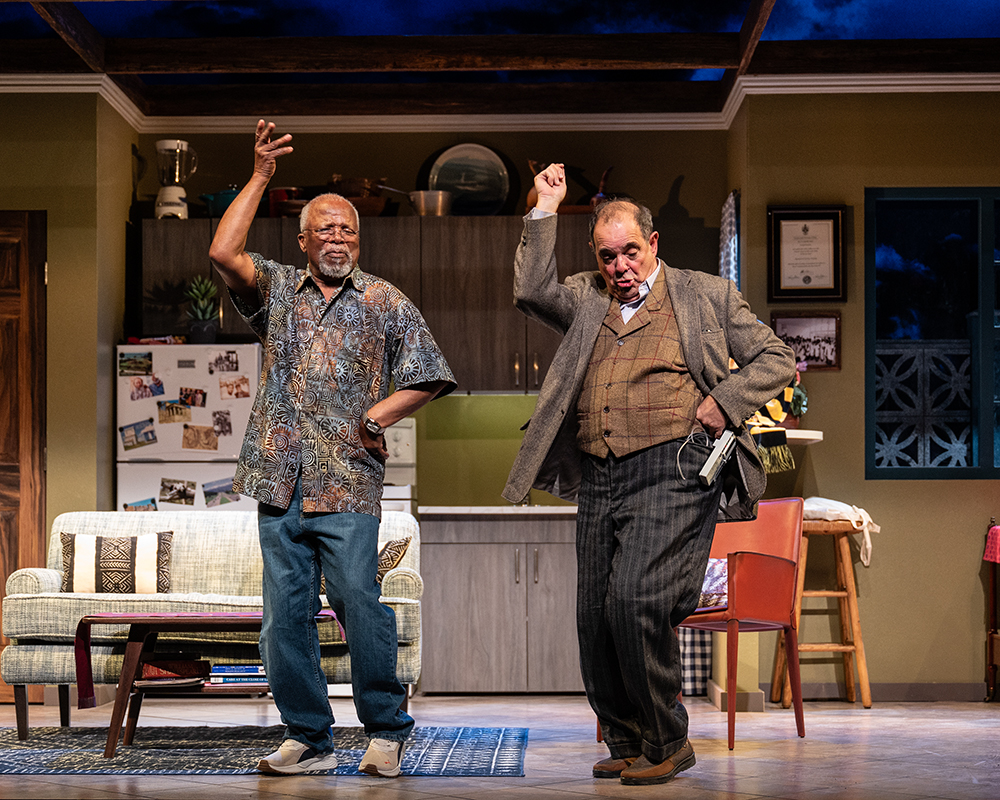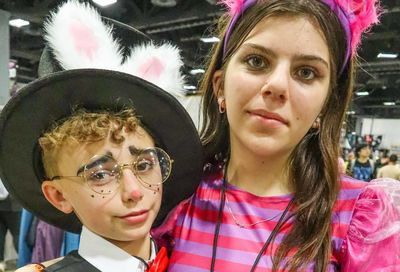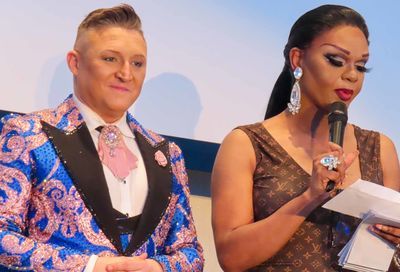‘Strange Way of Life’ Review: Mild-to-Wild West
Pedro Pascal and Ethan Hawke star as cowboys with a romantic past in Pedro Almodóvar's breathtaking queer short, "Strange Way of Life."

As Pedro Almodóvar excitedly introduced Strange Way of Life at the New York Film Festival last weekend, he described the short film as a new frontier in his 43-year filmmaking career: his first Western.
“I tried to remain faithful to a genre,” the idiosyncratic Spanish filmmaker told the audience, explaining how he took influence from classic American Westerns like Red River and The Searchers but wanted to explore themes of desire in a genre dominated by men. “I usually mix several genres.”
But this is Pedro Almodóvar we’re talking about here — connoisseur of lavish colors, fierce melodrama, and bold mingling of styles — so the star-studded, gay-themed Strange Way of Life (★★★★☆) is about as straightforward a Western as The Skin I Live In was a straightforward horror flick.
That’s a good thing, since this cowboy short crackles with violence, intrigue, and queer desire in a rare English-language outing for the Spanish auteur. It’s far more satisfying and visually striking than his previous short, his 2020 lockdown-era The Human Voice.
Like several of Almodóvar’s best films, from All About My Mother (1999) to Pain and Glory (2019), the story centers around a fraught reunion between two estranged characters, whose complex history is at first a mystery. Pedro Pascal (The Last of Us) stars as Silva, a skilled rancher who travels across a desert to visit a dogged small-town sheriff named Jake, played by a goateed Ethan Hawke. The two men, we learn in flashback, were lovers some 25 years earlier, when they worked together as hired gunmen. Silva seems eager to resume their romance.
Now pushing 50, they reunite and reminisce over stew in Jake’s sleek abode, then wind up in bed. Those hoping for a sensual love scene between Pascal and Hawke will be disappointed; Almodóvar conveys their tryst stylishly and suggestively, with artful glimpses of a red velvet bedspread, clothing splayed around the room, and Silva’s nude backside. (If the clothes and interior design seem central to the film, that’s because Strange Way of Life is costumed and co-produced by Yves Saint Laurent. The corporate affiliation certainly shapes the look of the film, but never makes it feel like a commercial.)
As in Brokeback Mountain, the most prominent antecedent for a gay Western, their affair is interesting not just because it subverts the masculinity codes of the West, but also because of their distinct personalities. Silva is more flirtatious and effusive, while Jake is more hardened by life. His dialogue is delivered by Hawke in a hoarse growl far removed from the actor’s heartthrob roles of yesteryear. As in Paul Schrader’s First Reformed, Hawke excels at projecting a steely, solitary desperation, while Pascal coasts on the charisma and effortless good looks that have made him an internet favorite.
The morning after, the tone shifts and their reverie turns cold. “I knew one day I would cross the desert to see you again,” Silva mutters to his friend. But Jake, the sheriff, reveals that he knows about Silva’s ulterior motives for this visit.
As their reunion escalates into animosity, it’s revealed that Jake is investigating the murder of his sister-in-law, and Silva’s son Joe (George Steane) is the main suspect. Silva appeals for clemency, but Jake is loyal to the law. They each set out across the desert, in frantic pursuit of Joe, before the other can intervene in the case. Without revealing too much, let’s just say that Chekhov’s gun proves applicable here.
Almodóvar plays with familiar Western tropes: the aging gunslingers, the hardboiled sheriff, the two men on opposite sides of the law, the Mexican standoff. He indulges in some lavish wide shots of the vistas, but also delights in subverting this well-worn genre with his own fondness for melodrama — which, in this case, includes dramatic plot shifts, succulent flashbacks to Jake and Silva’s youthful romance, and a climax steeped in tenderness and irony. As ever, there’s an intertwining of past and present, and a fascination with what could have been.
Almodóvar has described Strange Way of Life as his “answer” to Brokeback Mountain, a film he reportedly turned down the opportunity to direct. But while Brokeback Mountain is a slow-burning drama, its desire and yearning simmering and oft-unspoken, Almodóvar’s film is plotty and fast-paced. If its climax feels a bit hasty and rushed, that’s to be expected for a film that crams this much action and resolution into a taut 31-minute runtime.

Strange Way of Life works because it doesn’t tamper down Almodóvar’s flamboyant humor and dramatic sensibility, but fuses it together within a Western framework. The result is an odd but utterly compelling fusion. At the New York Film Festival screening, Almodóvar said that he has found it invigorating to make short films again at this late stage of his career. “It felt to me as if I was recovering my youth,” he remarked, “as if I was just beginning to make films.” That sense of excitement infuses the film itself, bringing a Spanish spark to a distinctly American genre.
Strange Way of Life opens nationwide on Friday, Oct. 6, including the AMC Georgetown in D.C. and Angelika Mosaic in Fairfax, Va. Visit www.fandango.com.
Support Metro Weekly’s Journalism
These are challenging times for news organizations. And yet it’s crucial we stay active and provide vital resources and information to both our local readers and the world. So won’t you please take a moment and consider supporting Metro Weekly with a membership? For as little as $5 a month, you can help ensure Metro Weekly magazine and MetroWeekly.com remain free, viable resources as we provide the best, most diverse, culturally-resonant LGBTQ coverage in both the D.C. region and around the world. Memberships come with exclusive perks and discounts, your own personal digital delivery of each week’s magazine (and an archive), access to our Member's Lounge when it launches this fall, and exclusive members-only items like Metro Weekly Membership Mugs and Tote Bags! Check out all our membership levels here and please join us today!
























You must be logged in to post a comment.